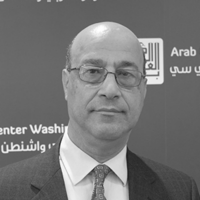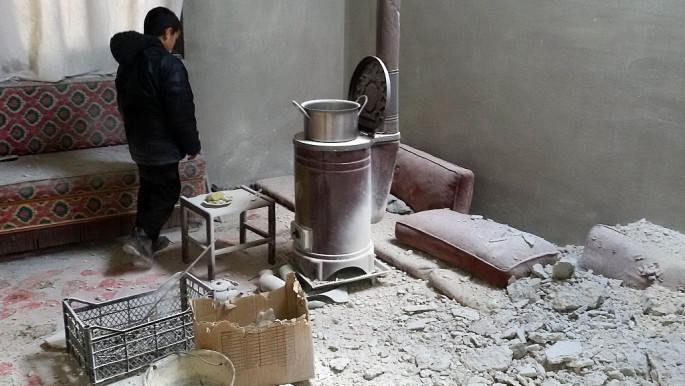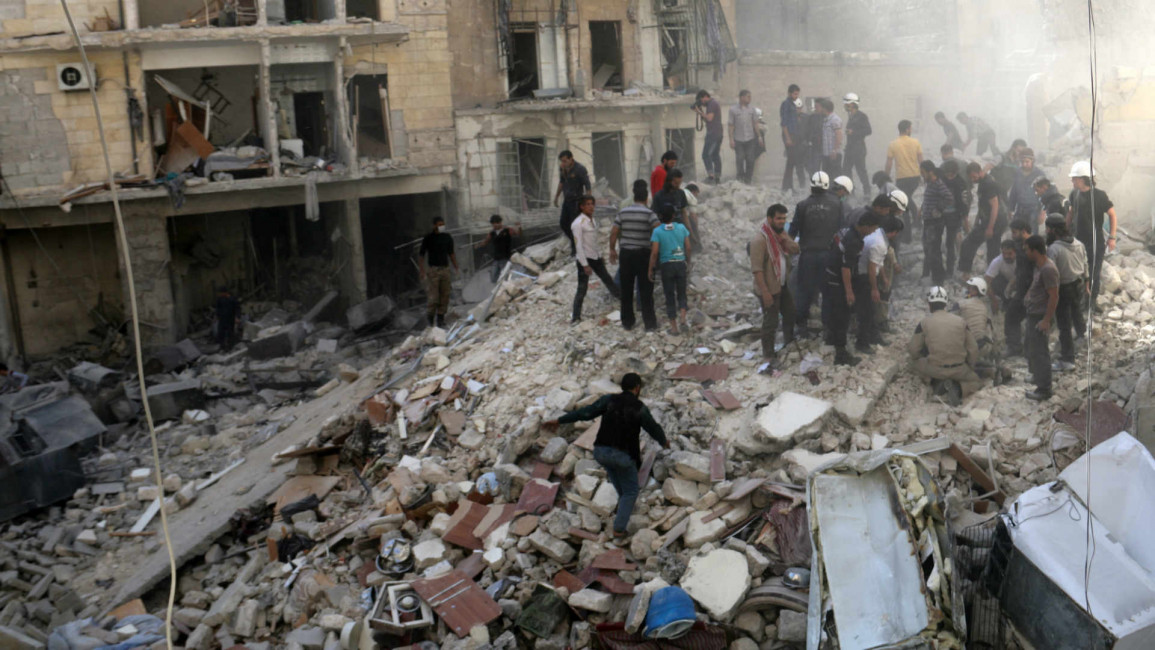
Russian-US plans to repatriate Syrians are futile while Assad remains
In fact, Moscow seems to monopolise the announcements from the tête-à-tête, to the chagrin of many Americans.
However, it appears that one agreement was reached between the two leaders regarding the return of millions of Syrian refugees to their country.
Commenting on the agreement, American Secretary of State Mike Pompeo emphasised that the return of the refugees, whenever it takes place, would be "a voluntary mechanism" in which the United States wants to play an important part.
Who needs repatriation?
While the American-Russian agreement speaks of the Syrians who fled the country since 2011, any re-settlement should also include internally displaced people (IDPs) who, for many reasons had to move to safer areas within the country.
The latest figures from the United Nations High Commissioner for Refugees put the number of Syrians in neighbouring countries (Turkey, Lebanon, Jordan, Iraq and Egypt) at about 5.6 million. The number of IDPs stands at 6.6 million.
About one million Syrian refugees and asylum seekers live in Europe.
The call to repatriate refugees is doubtless music to the ears of the refugees themselves. The same can obviously be said about the millions of IDPs who have lost their homes and livelihoods.
Perhaps most politically important is the welcome that repatriation will receive from leaders of the neighbouring and European countries have hosted the refugees.
 |
Those displaced from their homes and towns left because of government oppression |  |
Host neighbours have to contend with myriad political, economic and social problems exacerbated by the influx of refugees in need of food, shelter and employment.
Additionally, as European xenophobia increases, racism towards Syrians has also surfaced in Lebanon and Turkey, with municipalities shamelessly enforcing curfews on their movements.
Still, however, it is hard to see how repatriating refugees, or IDPs for that matter, could be implemented without first addressing prevalent conditions in Syria today.
Syria is still Assad's fief
First, resettling refugees and IDPs necessitates addressing the underlying reasons for their original displacement; namely, the authoritarian and iron-fisted rule of Bashar al-Assad.
Those displaced from their homes and towns left because of government oppression, criminal military operations, Syrian army sieges and active 'depopulation'.
 |
|
| A Syrian child inspects the damage after regime bombing hits a house in a rebel-held area north of Aleppo [Anadolu] |
Without a political process that guarantees a route for transition from authoritarian rule, the pre-2011 conditions are likely to be re-produced, leading to further unrest in the future.
The Syrian opposition still calls for implementing the 2012 Geneva process that spelled out the initial conditions for such a transition.
Read more: Moscow suggests cooperation with US on return of Syrian refugees
But neither the regime, nor Russia or Iran - the guarantors of its survival - will entertain or accept any such process, since would pave the way for Assad's departure.
Destruction and devastation are the norm
Second, it is almost impossible for over 12 million refugees and internally displaced persons to return to devastated cities, towns and villages. Reconstruction is thus an essential prerequisite for repatriation.
Estimates on the cost of Syria's reconstruction and rehabilitation vary widely, ranging from $100 billion - woefully low - to $1 trillion. While Russia and Iran have invested their military and prestige to prop up the Assad regime, economically, they are unable to foot the bill.
 |
Syria's economy - weak to begin with and centrally directed - has to all intents and purposes, collapsed over the last seven years |  |
Prohibitions on funding reconstruction because of the absence of a political transition process in Syria also prevent some western countries from contributing to the effort.
In other words, rehabilitating the physical infrastructure necessary for receiving repatriated Syrians cannot happen without movement on the political settlement involving a transition from Assad's rule.
Economic recovery is essential
Third, Syria's economy - weak to begin with and centrally directed - has to all intents and purposes, collapsed over the last seven years, and will be unable to provide for all Syrians.
From 2010 to 2017, Syria's economy declined by 70 percent because of war, sanctions, disruptions, inflation and stoppages, among other things.
The World Bank paints a very bleak picture of all sectors of the economy. Even with an end to the war, the Bank predicts long years before any recovery can be posted, something which would require the help of international donors.
 |
From 2010 to 2017, Syria's economy declined by 70 percent because of war |  |
This assistance, however, won't come without strings attached, and will be linked to demands for a political settlement away from Assad's authoritarianism.
Can repatriation be done?
It is hard to disparage the call for repatriating Syrians to their homes and towns after witnessing their calamitous existence over the last seven or more years.
But repatriating over 12 million refugees and internally displaced persons cannot be done on a whim, or by ignoring the facts on the ground.
A break from Assad's authoritarian regime is a prerequisite, which would pave the way for the much-needed reconstruction and rehabilitation of Syria's infrastructure, economy, and society.
While President Trump appeared in Helsinki overly ready to strike deals with Russia's Putin, his administration would do well to work towards changing current conditions that prevent the return of Syria's refugees and IDPs to their homes.
Imad K. Harb is the Director of Research and Analysis at Arab Center Washington DC.
Opinions expressed in this article remain those of the author and do not necessarily represent those of The New Arab.
Follow us on Twitter: @The_NewArab




